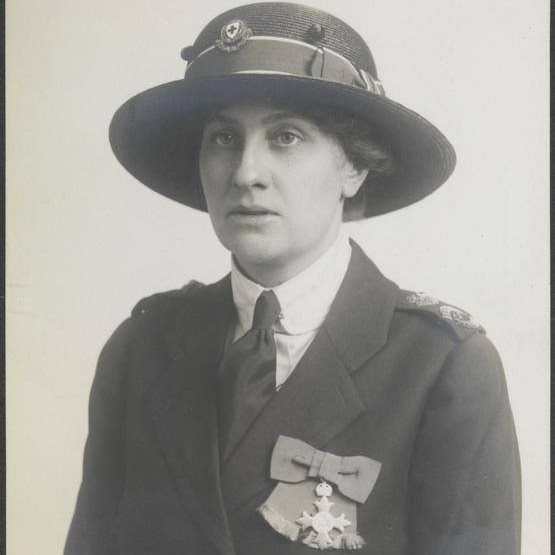Phyllis Lucy Deane, of Goldington Bury, was the Commandant of Howbury Hall VAD Hospital, Renhold, from August 1915 to November 1918.
A document archived in the Imperial War Museum tells us more about Mrs Deane and her time at Howbury Hall:
Mrs Deane had raised a Voluntary Aid Detachment in Goldington in February 1912, and became responsible for the 42 bed hospital at Howbury Hall some two years later.
She was involved in the organisation on Saturday, 23 October 1915 of “Our Day” for the Order of St John of Jerusalem and the British Red Cross Society. In October 1917 she was mentioned in the List of Women’s work for the Wounded, and was awarded her MBE in January 1918.
We learn from Red Cross records that Mrs Deane was present every morning at the Hospital, with accounts, letters, etc being done at home in the evening. In October 1918 she was awarded a Red Cross Diploma.
Mrs Deane’s home was Goldington Bury, which had been the manor house for the Manor of Goldington Bury which coincidentally had been in the hands of the Becher family of Howbury Hall, Renhold from a time before 1728 to 1781. Did Mrs Deane know of that link with the place that became the VAD Hospital of which she was Commandant, we wonder?
Goldington Bury dated from the 18th century and probably stood on or near the site of the medieval manor house. It no longer stands, having been demolished at some point before 1964.




